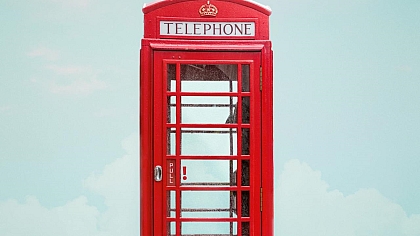
Navigating London’s Airports: Tips for a Smooth Journey and How to Claim a Flight Refund
London, one of the world’s most vibrant cities, is a major hub for international travel. With five major airports—Heathrow, Gatwick, Stansted, Luton, and London City—serving millions of passengers each year, the city plays a pivotal role in global air travel. However, the sheer volume of flights passing through these airports means that delays, cancellations, and other travel disruptions are not uncommon.
For travellers, these disruptions can be frustrating, but being prepared and knowing how to navigate such situations can make all the difference. Understanding your rights, particularly when it comes to securing a flight refund, is crucial. We will walk you through everything you need to know to ensure a smooth journey through London’s airports and how to claim compensation if your plans go awry effectively.
Preparing for Your Journey
A well-planned journey begins with a good understanding of the airports you’ll be passing through and making the necessary preparations ahead of time. London’s extensive airport network offers various options for travellers, and knowing what to expect can help minimize stress and ensure a smoother experience.
Understanding London’s Airport Network
London is served by five main airports, each with its unique characteristics and amenities:
-
Heathrow Airport (LHR): As one of the busiest airports in the world, Heathrow serves as a major hub for international flights. Located about 15 miles west of central London, it’s easily accessible via the Heathrow Express, the London Underground (Piccadilly Line), and various bus and taxi services.
-
Gatwick Airport (LGW): Located about 30 miles south of central London, Gatwick is the second-largest airport serving the city. The Gatwick Express provides a direct connection to London Victoria station, and there are also numerous coach services and taxi options.
-
Stansted Airport (STN): Primarily serving low-cost carriers, Stansted is situated approximately 40 miles northeast of London. The Stansted Express offers a direct rail link to Liverpool Street station, making it a convenient option for budget travellers.
-
Luton Airport (LTN): Another airport popular with low-cost airlines, Luton is located about 28 miles north of central London. The airport is accessible via a short shuttle bus ride from Luton Airport Parkway station, which connects to central London.
-
London City Airport (LCY): The closest airport to central London, London City Airport caters mainly to business travellers with its proximity to the financial districts. It’s connected to the Docklands Light Railway (DLR), offering easy access to the city’s transport network.
Understanding the layout, transportation options, and facilities at these airports is key to planning your journey effectively.
Essential Pre-Flight Preparations
To ensure your travel day goes as smoothly as possible, it’s important to make several key preparations:
-
Arrive Early: Aim to arrive at the airport at least two hours before a domestic flight and three hours before an international flight. This allows ample time for check-in, security screening, and any unforeseen delays.
-
Check-In Online: Many airlines offer online check-in 24 to 48 hours before departure. This not only saves time at the airport but also allows you to choose your seat and, in some cases, print your boarding pass in advance.
-
Luggage Considerations: Familiarize yourself with your airline’s baggage policy to avoid unexpected fees or delays at check-in. Pack efficiently and ensure your hand luggage complies with size and weight restrictions.
-
Navigating Security: Be prepared for security checks by placing liquids in a clear, resealable bag and keeping electronics easily accessible. Wearing shoes that are easy to remove and avoiding metal accessories can also speed up the process.
Staying Informed and Connected
Staying informed about your flight status and airport conditions is crucial, especially on the day of travel:
-
Download the Airport’s App: Many of London’s airports offer apps that provide real-time flight information, terminal maps, and other useful details. These can be invaluable in navigating the airport and staying updated on any changes to your flight.
-
Sign Up for Flight Alerts: Most airlines allow you to sign up for SMS or email alerts regarding your flight status. These alerts can notify you of any delays, gate changes, or other important updates.
-
Use Airport Services: Take advantage of the services offered by London’s airports, such as free Wi-Fi, charging stations, and information desks. These can help you stay connected and make your wait more comfortable.
By preparing in advance and staying informed, you can reduce stress and increase your chances of a smooth travel experience. However, even the best-laid plans can be disrupted, which brings us to the next important topic: how to handle flight disruptions.
Handling Flight Disruptions
Despite careful planning, flight disruptions such as delays, cancellations, or even denied boarding can still occur. Understanding the common causes of these disruptions and knowing your rights as a passenger can help you navigate these situations more effectively.
Common Causes of Flight Delays and Cancellations
Several factors can lead to flight disruptions, many of which are beyond the airline's control. Some of the most common causes include:
-
Weather Conditions: London’s weather can be unpredictable, with fog, heavy rain, and even snow potentially causing delays or cancellations, especially during winter months. Poor visibility and unsafe flying conditions often force airlines to delay or cancel flights to ensure passenger safety.
-
Air Traffic Control Strikes: Strikes by air traffic controllers, whether in the UK or elsewhere in Europe, can lead to widespread disruptions. These strikes often result in significant delays or cancellations, particularly for flights over or into the affected regions.
-
Technical Issues: Aircraft maintenance and technical problems can also cause delays. Airlines are required to ensure that all safety protocols are followed before departure, which can lead to unexpected wait times or flight cancellations.
-
Operational Challenges: High passenger volumes, particularly during peak travel periods, can sometimes overwhelm airport services, leading to delays. Additionally, issues such as staff shortages or problems with ground handling services can also contribute to flight disruptions.
While some of these issues are unavoidable, it’s important to know what to do if your flight is affected.
Passenger Rights Under EU Regulation 261/2004
If your flight is delayed or cancelled, or if you are denied boarding due to overbooking, you are protected under EU Regulation 261/2004. This regulation outlines the compensation and assistance airlines must provide to passengers in these situations.
-
Flight Delays: If your flight is delayed by more than three hours, you may be entitled to compensation ranging from €250 to €600, depending on the flight distance. The airline is also required to provide you with meals, refreshments, and, if necessary, accommodation for overnight delays.
-
Flight Cancellations: In the event of a cancellation, airlines must offer passengers the choice between a full refund or re-routing to their final destination at the earliest opportunity. If you choose re-routing, you may also be entitled to compensation if the new flight results in significant delays compared to your original schedule.
-
Denied Boarding: If you are denied boarding due to overbooking, the airline must compensate you immediately and offer alternative travel arrangements or a refund.
It’s important to note that these rights apply to flights departing from any EU airport or flights arriving in the EU operated by an EU-based airline. If your flight falls under these criteria, you are entitled to claim compensation as long as extraordinary circumstances, such as extreme weather or political instability didn’t cause the disruption.
While these rights are clear, the process of claiming compensation can be complex and time-consuming, which is where services like AirHelp come in handy.
How to Claim a Flight Refund
When your flight is delayed, cancelled, or you’re denied boarding, knowing how to claim a flight refund is crucial. The process can be straightforward or complex, depending on the airline and the specific circumstances of the disruption. We will guide you through the steps you need to take, including how services like AirHelp can assist you in securing the compensation you deserve.
Understanding the Refund and Compensation Process
After a flight disruption, your priority should be to understand what you are entitled to and how to initiate the refund process. Here’s a step-by-step guide:
-
Document the Disruption: As soon as your flight is delayed or cancelled, start documenting the situation. Take note of the delay time, and reason given by the airline, and keep all related documents such as boarding passes, booking confirmations, and receipts for any expenses incurred due to the disruption.
-
Contact the Airline: Most airlines have a customer service desk at the airport. It’s advisable to speak with a representative immediately to understand your options, such as rebooking or refunds. Airlines are required to offer you alternatives, including re-routing or a full refund if the flight is cancelled.
-
Understand Your Rights: As mentioned earlier, under EU Regulation 261/2004, you may be entitled to compensation if your flight is delayed by more than three hours, cancelled, or you are denied boarding. Ensure you know the specific compensation amounts and requirements based on the distance of your flight and the length of the delay.
-
Submit a Compensation Claim: If you believe you are entitled to compensation, you can submit a claim directly to the airline. This typically involves filling out a form on the airline’s website or sending a formal letter of complaint. Be prepared for this process to take time, as airlines often delay or deny claims.
-
Follow-up: If your claim is denied or you do not receive a response within the expected timeframe, it’s important to follow up persistently. Keep all correspondence, and be ready to escalate the matter if necessary.
While this process can be done independently, it can be tedious and time-consuming. This is where AirHelp can be particularly useful.
How AirHelp Can Assist You
AirHelp is a service designed to make the flight refund and compensation process easier for passengers. Here’s how AirHelp can assist you:
-
Streamlined Process: AirHelp takes over the entire claims process, from submitting the initial claim to negotiating with the airline on your behalf. This means you don’t have to deal with the often frustrating back-and-forth with the airline.
-
Expertise and Knowledge: AirHelp has extensive experience dealing with airlines and understanding the intricacies of EU Regulation 261/2004. They know how to handle cases where airlines may try to avoid paying compensation by citing extraordinary circumstances or other loopholes.
-
No Win, No Fee: AirHelp operates on a contingency fee basis, meaning you only pay a fee if they successfully secure your compensation. This makes it a low-risk option for passengers who might otherwise be hesitant to pursue a claim.
-
Higher Success Rates: Because of their expertise, AirHelp often has higher success rates in securing compensation compared to passengers who try to claim independently. They also handle the legal aspects if the case needs to be taken to court, which is something most passengers might find daunting.
Using a service like AirHelp can save you time and ensure that you receive the compensation you’re entitled to without the stress of navigating the claims process on your own.
Alternative Methods for Claiming Compensation
If you prefer to handle the compensation process independently, here are some additional tips:
-
Direct Contact with the Airline: Start by visiting the airline’s website, where you can usually find a claims form under the “Contact Us” or “Customer Service” section. Fill out the form accurately and attach all necessary documentation.
-
Use Consumer Rights Organizations: If the airline denies your claim, you can seek assistance from consumer rights organizations such as the UK Civil Aviation Authority (CAA) or European Consumer Centres (ECC-Net). These organizations can offer guidance and, in some cases, intervene on your behalf.
-
Small Claims Court: If all else fails, you may consider taking the airline to small claims court. This should be a last resort, as it can be time-consuming and involves legal costs, but it’s an option if you believe your claim is valid and the airline refuses to cooperate.
By understanding your options and taking the right steps, you can maximize your chances of receiving the compensation you deserve.
Additional Tips for Hassle-Free Travel

Ensuring a smooth and stress-free travel experience goes beyond just understanding your rights and knowing how to claim a refund. By following some practical tips, you can minimize potential disruptions and make your journey through London’s airports as seamless as possible.
Packing Smart and Travelling Light
Packing strategically can save you time and stress, especially if your flight is delayed or your luggage is lost:
-
Carry-On Essentials: Always pack essential items such as medications, important documents, a change of clothes, and basic toiletries in your carry-on luggage. This ensures you have what you need in case your checked luggage is delayed or lost.
-
Know the Rules: Familiarize yourself with airport security regulations regarding liquids, electronics, and prohibited items.
Liquids must be in containers of 100ml or less and placed in a clear, resealable bag. Although some major airports have adopted next-generation CT scanners, which allow for more flexibility, the 100ml rule has been reinstated in certain airports. To avoid any unwanted surprises, it’s always wise to check the latest security guidelines at your departure airport before you travel.Electronics like laptops and tablets will need to be removed from your bag at security, so pack them in an easily accessible spot.
-
Keep It Light: Travelling with only carry-on luggage can save time at both check-in and arrival, as you’ll avoid the baggage claim altogether. This is especially useful if you’re on a short trip or have connecting flights where time is tight.
-
Luggage Tags: Ensure your luggage is clearly labelled with your name, address, and contact information. Using a distinctive tag or ribbon can also help you spot your bag more easily on the carousel.
Staying Connected at the Airport
Maintaining communication during your time at the airport is crucial, especially if there are flight disruptions:
-
Utilize Free Wi-Fi: All major London airports offer free Wi-Fi, so take advantage of it to stay in touch with family or colleagues, check for flight updates, or simply pass the time.
-
Charging Stations: London’s airports have numerous charging stations to power up your devices. Consider bringing a portable charger as well, especially if you’ll be using your phone extensively for boarding passes, entertainment, or navigation.
-
Stay Updated: In addition to flight information screens, use your airline’s app or the airport’s official app to receive real-time updates on gate changes, delays, or cancellations. Being aware of these changes as early as possible allows you to react quickly and make alternative arrangements if necessary.
Navigating Through Security and Customs
Getting through security and customs smoothly can make a big difference in your overall travel experience:
-
Fast Track Options: Some London airports offer fast-track security services for an additional fee. This can be especially valuable during peak travel times when security lines can be long. Consider purchasing this service if you’re pressed for time or simply want to reduce stress.
-
Prepare for Security Checks: Before reaching the security checkpoint, remove jackets, belts, and any metal items, and place them in the provided bins. Ensure your liquids are ready in a clear, resealable bag, and have your electronics easily accessible for inspection.
-
Navigating Customs: Upon arrival in London, you’ll need to pass through customs if you’re arriving from outside the UK. To speed up this process, fill out any necessary customs declaration forms in advance and have your passport and other documents ready. UK and EU passport holders can usually use the ePassport gates for quicker processing.
-
Global Entry and Mobile Passport: If you frequently travel internationally, consider enrolling in Global Entry or using the Mobile Passport app to expedite the customs process. While Global Entry is primarily for US citizens and nationals, Mobile Passports can be used by travellers from many countries.
By following these tips, you can reduce stress and increase the likelihood of a smooth travel experience through London’s airports.
Travelling through London’s bustling airports can be a complex experience, but with proper preparation and knowledge, you can ensure a smoother journey. By understanding the layout and services of London’s airports, packing smart, and staying informed about your flight status, you can significantly reduce the likelihood of disruptions.
However, even with the best planning, flight delays, cancellations, or denied boarding can still occur. When they do, it’s crucial to know your rights under EU Regulation 261/2004, which provides clear guidelines on the compensation you’re entitled to in such situations. While you can handle the claims process independently, using a service like AirHelp can simplify the process, ensuring that you receive the compensation you deserve without the hassle of dealing with airlines directly.
In addition to understanding your rights, following practical travel tips—like packing essentials in your carry-on, staying connected at the airport, and navigating security efficiently—can further enhance your travel experience. By being well-prepared and informed, you can turn potential travel challenges into manageable situations, allowing you to focus on enjoying your time in London.
Whether you’re a seasoned traveller or visiting London for the first time, these insights will help you navigate any unexpected disruptions with confidence.











